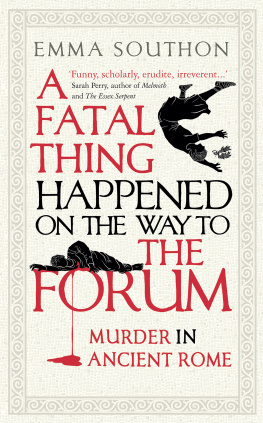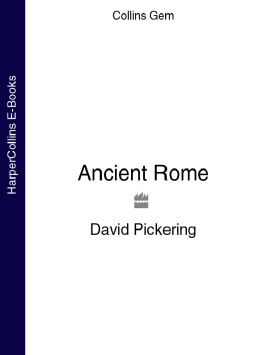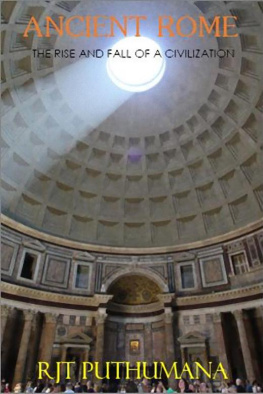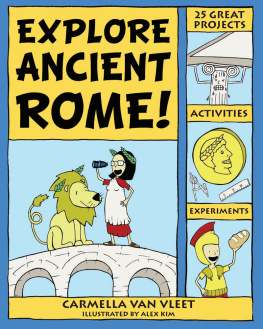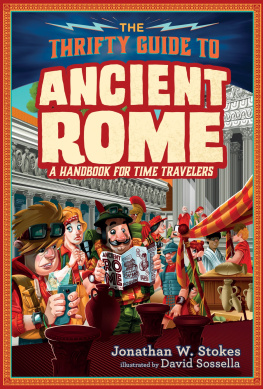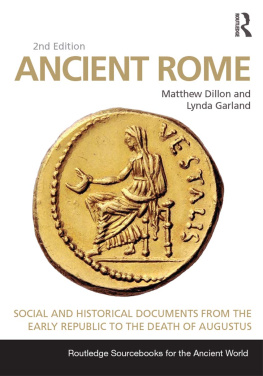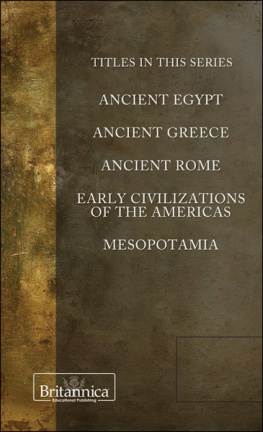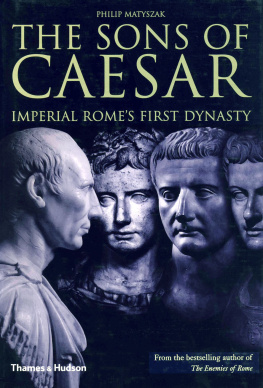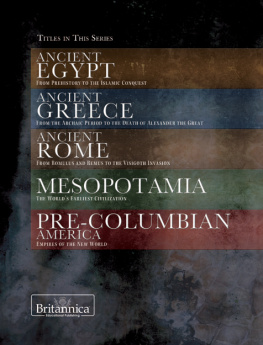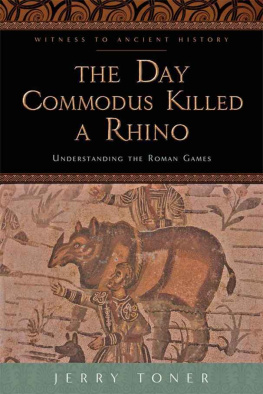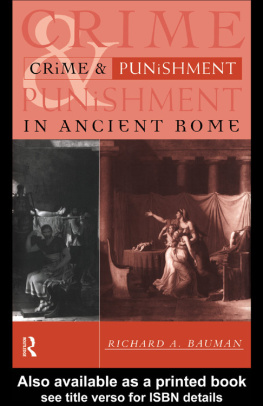Also by Emma Southon
Agrippina: Empress, Exile, Hustler, Whore
Marriage, Sex and Death: The Family and the Fall of the Roman West
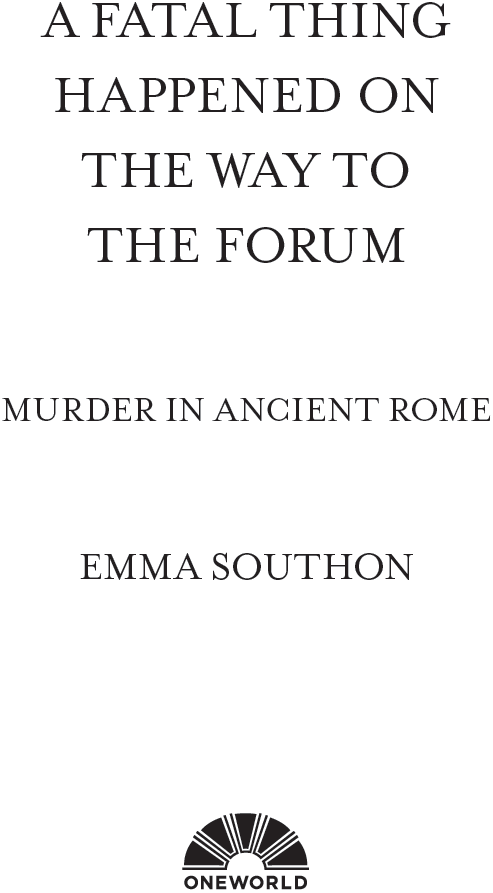
Right and wrong is not absolute or relative: it is geometrical.
Mark Cooney, Is Killing Wrong?
The army might teach us to kill,
but it doesnt teach us to murder.
Casefile , Episode 90
For Amy-Elizabeth, Jess and Kate: my murder pals
Contents
Prologue
Picture the scene: an idyllic hill in central Italy, a group of men sit, silently watching the afternoon sky. In the distance, though easily within sight, on another hill are another group. These men are all shepherds and followers of twins who had risen from nowhere to kill the king of Alba Longa and seize the throne for their own, declaring themselves the sons of Mars. Under their rule, Alba Longa had welcomed fugitives and runaway slaves and vagabonds of all stripes until it had grown so large that the twins had decided to found themselves a city. And here they reached, for the first time in their lives, a point of irreconcilable conflict: for reasons unclear, the city had to be named after only one twin; the other would have to submit to his brother. Neither willing to back down, they agreed to let the gods decide between them by sending an omen. The omen they requested was vultures, and now they, with their followers, sat, waiting and watching, glowering across the valley. You already know the names of these twins: Romulus and Remus.
After god knows how long, a cry went up from the Aventine Hill where Remus and his pals waited. Six vultures had appeared. A sign the gods favoured Remus as the founder of the new city. Elated, he set out with his closest allies to the Palatine Hill where his brother Romulus was grimly waiting. Remus gave his news to Romulus, but at that moment another sign appeared. Twelve vultures flew over the Palatine. The gods had decided that Romulus would be the founder.
Each group hailed their preferred twin as the chosen king, which was awkward. Both groups began building their city. Tensions rose. Eventually, in an act of ultimate contempt, Remus leapt over one of the rising city walls on the Palatine, inciting Romulus into an uncontrollable fury. He attacked his brother and stabbed him to death and declared, unrepentant, that this was what would happen to anyone who ever breached his walls. And thus, in murder, Rome was founded.
By 510 BCE , Rome was a flourishing city under the king Tarquinius Superbus. Something, however, was rotten in the state of Rome and another act of violence soon changed everything. Tarquinius son Sextus Tarquinius raped an aristocratic woman named Lucretia. Lucretia responded by calling a family meeting, explaining what had happened and then driving a knife into her own heart. Her family saw this as honourable and praiseworthy in the extreme, and, full of righteous rage and grief, they took to the Forum and displayed her body as that of a murder victim. They demanded Tarquinius and his son be overthrown and exiled. The people of Rome agreed and, with a remarkable unity of purpose, swiftly abolished the monarchy and established the Roman Republic. The Romans designed the Republic to deny power to individuals and to prevent, through the means of shared power, checks and balances, any single man from becoming a tyrant. It was the Romans proudest achievement and it was founded in the unjust death of a woman.
The glorious Republic of Rome lasted 450 years, and the moment of its demise was also marked by murder. That moment came on the Ides of March 44 BCE when Romes sole ruler entered the Theatre of Pompey and forty of his friends administered twenty-three stab wounds, leaving Julius Caesar, perpetual dictator of Rome and proto-emperor, bleeding to death on the floor of the entrance hall, and opening the path for his nineteen-year-old great-nephew Octavian to become the glorious, deified emperor Augustus.
Introduction
Whenever there was a transformative moment in Roman history, there was a murder. A person died, usually bloodily, and, in the space where they once lived, something entirely new emerged. Rome was built on the blood of Remus; the Republic was born from the death of Lucretia; the Empire grew from the assassination of Caesar. Rome was an unusually murder-y place. But for most of Roman history murder was not a crime. And for all of Roman history, killing in the gladiatorial arena was a literal sport. The symbol of the Roman state was the fasces a bundle of sticks containing an axe. The sticks represented the power of the state to beat its citizens, and the axe represented its right to kill them. The fasces were carried by guards known as lictors who accompanied all Roman officials whenever they left their houses, so the message was never forgotten. Few other societies have revelled in and revered the deliberate and purposeful killing of men and women as much as the Romans. The Romans were, frankly, weird about it.
But then, we as a Western society are also weird about murder. We absolutely love it. We consume it with a passion. Right now, in the UK, one in every three books purchased is a crime novel, which inevitably opens with a pretty woman found dead. The crime novelist James Patterson has been the worlds bestselling author for about five years. The amount of money he makes a year knocking out thrillers about gruesome murders (eighteen of which are about a Womens Murder Club) is so enormous my brain cant comprehend it. The joint biggest-selling English-language author of all time is Agatha Christie, selling between two and four billion copies of her murder mystery novels. But its not all fiction. True crime is also booming. In 2014, the podcast Serial, about the murder of a high school student, was downloaded forty million times in three months and things have only got better for murder podcasts and associated media from there. You, dear reader, have picked up a book called A Fatal Thing Happened on the Way to the Forum , which promises (and will deliver) lots of good death and gore. Im not judging, though. I wrote this book. Because I love murder too. I was a Serial fanatic. I am an Agatha Christie obsessive. I am fascinated by murder. Ill talk about my (many) serial killer opinions a lot if you listen to me for long enough.
Our Western obsession with murder as a titillating and enormously entertaining outlier makes us extremely odd in the grand cultural scheme of things. No other society has built media empires on such mountains of dead and mutilated women. But, to us, the Romans look like the weird ones because they were fascinated by murder in a different way. We have our mountains of dead fictional girls. But they had mountains of dead real men. Murder was a very literal sport. They took enslaved men and prisoners of war, forcing them to fight one another in an arena until one died violently in front of a screaming crowd of highly entertained people. Regularly. This was the number two sport in Rome (number one: horse racing) and it somewhat skewed how Romans perceived murder in the rest of their lives, along with how they viewed the fundamental notions of life and death and what it means to be a human.
The Romans also had an institutionalised, domestic and utterly pervasive form of slavery that is hard to get your head around as a modern person who believes that every person is equal. Enslaved men, women and children were everywhere in Rome. Aristocratic homes had hundreds of people living in them who had been enslaved by the Romans. Even poorer homes might have had one enslaved member of the household. The Roman state ran on the labour of enslaved men doing the administrative and physical labour necessary to run a huge empire and build fuck-off massive marble buildings covered in pretty paintings every four hundred yards. No inhabitant of Rome went without contact with enslaved persons and no one ever questioned it. No Roman ever looked at their slaves and at their freed slaves (who remained part of their household) and thought, Hang on a minute. These are people! Instead, they treated these men, women and children with whom they shared their houses as though they were chairs. Things that could be abused and kicked and disposed of without, for the most part, any consequence. And everyone agreed that was fine and normal and right. And that also rather messed with their notions of right and wrong and life and death too.

